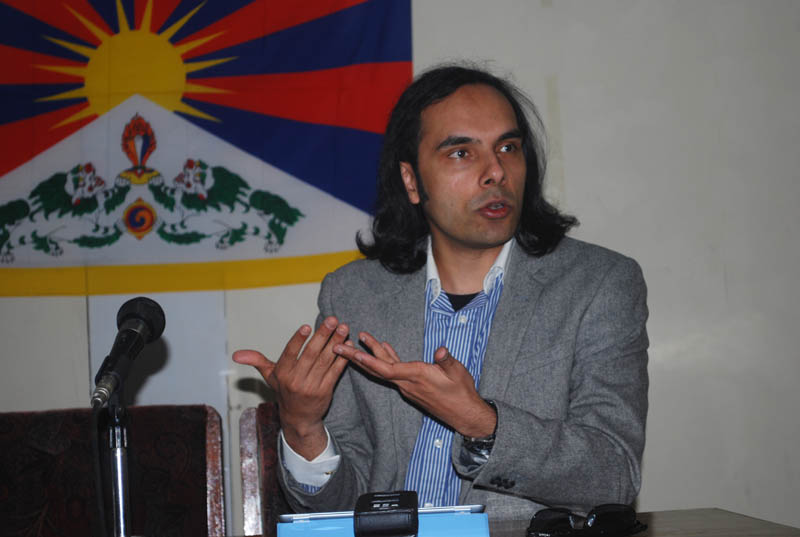 Dharamshala, India: - Speaking to the staff of the Department of Information and International Relations (DIIR), the Tibet Policy Institute and the Tibetan Center for Human Rights and Democracy (TCHRD), Dr Dibyesh Anand gave a brief talk on Sino-Indian relations and the Tibet factor.
Dharamshala, India: - Speaking to the staff of the Department of Information and International Relations (DIIR), the Tibet Policy Institute and the Tibetan Center for Human Rights and Democracy (TCHRD), Dr Dibyesh Anand gave a brief talk on Sino-Indian relations and the Tibet factor.
Dr Dibyesh Anand is an associate professor of International Relations at the University of Westminster, London and an expert on majority-minority relations in China and India. He is the author of Geopolitical Exotica: Tibet in Western Imagination.
Sino-Indian relations is very complex and Tibet is just one of the factors, Dr Anand said.
Speaking on the Tibetan diaspora in India, he said the Tibetan people are grateful for the hospitality provided by the Indian government. At the same time, he says the Tibetans too have contributed a lot to India in terms of revitalizing Buddhist culture throughout the Himalayas.
Talking about Tibetans taking citizenship of other countries, Dr Anand said feelings and emotions are not shaped by passports and added that attaining citizenship can lessen refugee vulnerability.
Recalling one of his earlier visits to Tibet, he said the nature of development in Tibet is very problematic. There are better roads, better houses, better everything but the dignity of the Tibetan people is not respected, he said.
At the end of the talk, Kalon Dicki Chhoyang of the Central Tibetan Administration's Department of Information and International Relations ( DIIR) thanked Dr Dibyesh Anand and presented him a book as a token of appreciation.
The talk was a joint initiative by the the newly formed, Tibet Policy Institute, a think-tank of the Central Tibetan Administration and Tibetan Center for Human Rights and Democracy (TCHRD).


![Tibet has a rich history as a sovereign nation until the 1950s when it was invaded by China. [Photo: File]](/images/stories/Pics-2024/March/Tibet-Nation-1940s.jpg#joomlaImage://local-images/stories/Pics-2024/March/Tibet-Nation-1940s.jpg?width=1489&height=878)















